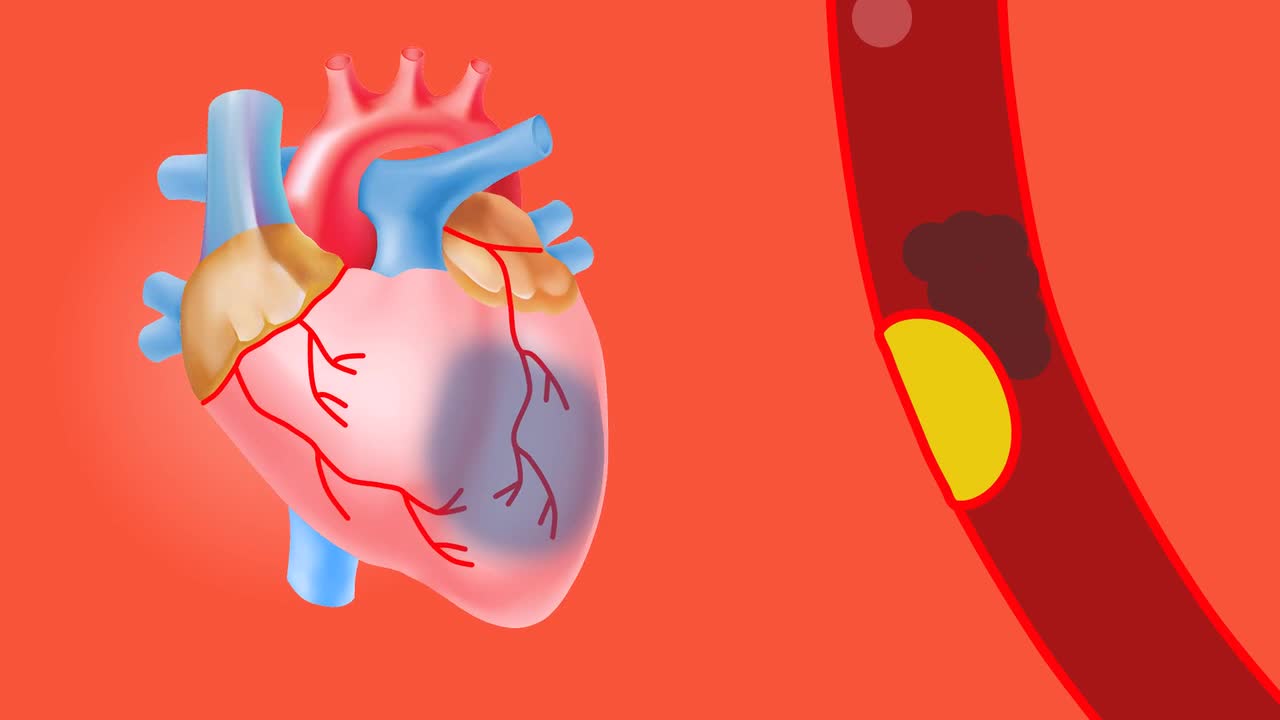Premium Only Content

coronary heart attack
Coronary artery disease develops when the major blood vessels that supply your heart become damaged or diseased. Cholesterol-containing deposits (plaques) in your coronary arteries and inflammation are usually to blame for coronary artery disease.
The coronary arteries supply blood, oxygen and nutrients to your heart. A buildup of plaque can narrow these arteries, decreasing blood flow to your heart. Eventually, the reduced blood flow may cause chest pain (angina), shortness of breath, or other coronary artery disease signs and symptoms. A complete blockage can cause a heart attack.
Because coronary artery disease often develops over decades, you might not notice a problem until you have a significant blockage or a heart attack. But you can take steps to prevent and treat coronary artery disease. A healthy lifestyle can make a big impact.
Symptoms
If your coronary arteries narrow, they can't supply enough oxygen-rich blood to your heart — especially when it's beating hard, such as during exercise. At first, the decreased blood flow may not cause any symptoms. As plaque continues to build up in your coronary arteries, however, you may develop the following coronary artery disease signs and symptoms:
Chest pain (angina). You may feel pressure or tightness in your chest, as if someone were standing on your chest. This pain, called angina, usually occurs on the middle or left side of the chest. Angina is generally triggered by physical or emotional stress. The pain usually goes away within minutes after stopping the stressful activity. In some people, especially women, the pain may be brief or sharp and felt in the neck, arm or back.
Shortness of breath. If your heart can't pump enough blood to meet your body's needs, you may develop shortness of breath or extreme fatigue with activity.
Heart attack. A completely blocked coronary artery will cause a heart attack. The classic signs and symptoms of a heart attack include crushing pressure in your chest and pain in your shoulder or arm, sometimes with shortness of breath and sweating.
Women are somewhat more likely than men are to have less typical signs and symptoms of a heart attack, such as neck or jaw pain. And they may have other symptoms such as shortness of breath, fatigue and nausea.
Sometimes a heart attack occurs without any apparent signs or symptoms.
-
 0:11
0:11
MyBrothersWorldShorts
3 years agoThe Heart Attack
1251 -
 1:53
1:53
Op Freedom
3 years agoCIA: HEART ATTACK WEAPON
1.21K12 -
 1:37
1:37
Chalkministries
3 years ago $0.01 earnedHeart Attack for Valentines Day!
39 -
 LIVE
LIVE
The Big Mig™
2 hours agoViolence & Burning The U.S. Flag, Democrats New Battle Cry
5,189 watching -
 27:39
27:39
Crypto.com
1 hour ago2025 Live AMA with Kris Marszalek, Co-Founder & CEO of Crypto.com
5.35K1 -
 LIVE
LIVE
The State of Freedom
2 hours ago#327 Digging Deeper into the Carbon Capture Scam w/ Brad LeBlanc
35 watching -
 38:39
38:39
VINCE
3 hours agoThis Is How The Media Spins The News | Episode 111 - 08/26/25
42.9K50 -
 LIVE
LIVE
Badlands Media
8 hours agoBadlands Daily: August 26, 2025
4,003 watching -
 LIVE
LIVE
GritsGG
2 hours agoWin Streaking! Coloring Hair at End of Stream! Most Wins 3435+ 🧠
154 watching -
 1:56:45
1:56:45
Dear America
3 hours agoNO MORE BURNING FLAGS!! 🇺🇸 Trump Signs Order Making It ILLEGAL!! + Trump Is SUING NEWSOM!
73.8K58